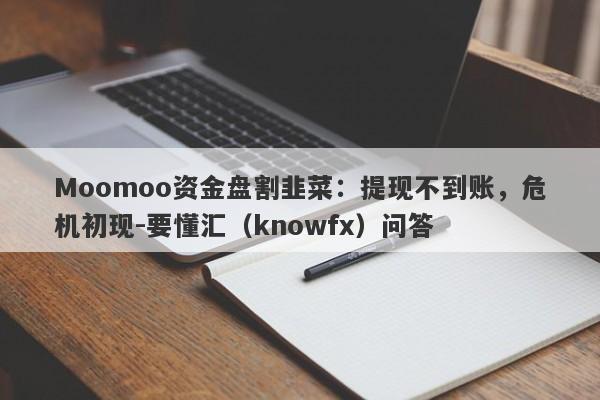As a long history and important product, gold plays a pivotal role in the global economy.It is not only a symbol of wealth, but also one of the cornerstones of the international monetary system.Since ancient times, gold has been regarded as a stable value reserve and has the function of avoidance and value preservation.Its price fluctuations have a profound impact on the global economy and often become the focus of attention of economists and investors.
The price fluctuations of gold not only reflect the changes in market supply and demand relationship, but also reflect the changes in the global economic situation.For example, factors such as financial crisis, geopolitical tensions, and inflation will directly affect the fluctuation of gold prices.Investors often evaluate the stability and risks of global economy by observing changes in gold prices.Therefore, in -depth discussing the historical comparison of gold prices and its impact on the economy are of great significance to understanding the global economic pattern.
Gold prices have experienced many ups and downs in history. From ancient times to the present, the price of its price has continued to fluctuate.There have been historic highs and lows, which contain various complex factors behind these fluctuations.Among them, the reasons for rising prices may include economic instability, inflation expectations, and geopolitical tensions, etc., and the decline in price may be affected by factors such as slowing economic growth, deterioration of market emotions, and changes in fiscal policy.
The fluctuation of gold prices not only directly affects the gold market, but also has an important impact on other financial markets.Investors often adjust their investment portfolios based on the trend of gold prices and formulate corresponding risk management strategies.In addition, the fluctuation of gold prices may cause fluctuations in market emotions, which affects the price trend of other assets and constitutes part of the financial market that cannot be ignored.
The difference in the price of gold is a common and complicated phenomenon in the financial market, and it covers many factors behind it.From a macro level, political stability, expected economic growth, and inflation levels will directly affect the fluctuation of gold prices.During the period of political turmoil or geopolitical tension, investors often turn to gold as a shelter, leading to rising prices.When economic growth slows down or inflation is expected to weaken, investors may reduce demand for gold, which will lead to price decline.

At the micro level, factors such as supply and demand relationships, speculation activities, and central bank policies will also have an important impact on gold prices.The change in supply and demand relationship directly affects the market's demand and supply of gold, and speculation may exacerbate the extent of price fluctuations.In addition, the central bank's gold reserves and policy adjustments will also directly affect the price of gold. For example, when some central banks purchase gold on a large scale, the price of gold may be promoted.Therefore, comprehensive consideration of the impact of macro and micro factors on gold prices can better understand the differences in the high and low prices of gold.
The fluctuations in gold prices are often affected by macroeconomic factors, including factors such as economic cycle, inflation and interest rate policies.The different stages of the economic cycle also have different impacts on the price of gold.In the economic growth cycle, investors tend to invest in risk assets such as stocks, and in the economic recession cycle, they are more inclined to seek hedging assets such as gold.This change in demand directly affects the fluctuation of gold prices.
Inflation is another important influencing factor.When inflation expectations are expected to increase, investors usually buy gold as a way to fight inflation, thereby promoting the rise in gold prices.Instead, when inflation is expected to weaken, the price of gold may be suppressed.In addition, the central bank's interest rate policy adjustment will also affect gold prices.Generally speaking, the central bank's interest rate hikes may lead to a decline in gold prices, and interest rate cuts may promote rising gold prices.Therefore, in -depth analysis of the impact of macroeconomic factors on gold prices, it helps investors to better grasp the market trend.
Facing the fluctuations in gold prices, investors can take multiple strategies to respond.First, long -term investment is a relatively stable strategy.Long -term holding gold can effectively fight inflation, and provide the function of hedging in the period of economic instability.Therefore, for those investors with a stable investment mentality, long -term investment in gold is a good choice.
Secondly, short -term transactions are also a common strategy.Through short -term transactions, investors can use the fluctuations of gold prices for buying and selling to obtain short -term investment income.However, it should be noted that short -term transactions need to have certain market analysis and operation skills, and at the same time accompanied by high risk.Therefore, investors need to be treated with caution when making short -term transactions to control risks.
In addition, hedge risk is also a common investment strategy.Investors can hedge the risks in their investment portfolios by purchasing gold futures contracts or financial derivatives.This can maintain the stability of the investment portfolio during market fluctuations and reduce losses.However, hedge also requires investors to have strong prediction capabilities and operating skills for the market, so not all investors are suitable for adopting this strategy.
Looking forward to the future, the trend of gold prices will be affected by many factors.First of all, the uncertainty of the global economic situation will be one of the important factors affecting the fluctuation of gold price.At present, global economic growth is facing a variety of challenges, including the effects of trade friction, geopolitical tensions, and epidemic conditions. These may promote investors to seek insurance assets and support gold prices.Secondly, changes in monetary policy will also directly affect the price of gold.With the adjustment of the central bank's monetary policy, the market's expectations for inflation and interest rate trend are constantly changing.The changes in these policies may trigger investors' concerns about inflation, thereby boosting gold demand and promoting price increases.
Based on the current economic situation and market environment, investors are facing both risks and opportunities in gold investment.Therefore, investors need to carefully analyze the market dynamics when investing in gold, flexibly adjust their investment strategies, and pay attention to changes in the global economy, politics and financial fields, and the adjustment of the central bank's monetary policy.Maximize benefits.

导言:在当今的投资领域里,我们时刻都需要保持警惕,因为投资市场的复杂...

海汇国际诈骗案深度解析:资金盘DRCFX复出传闻背后的真相导言:近年...

据“富途”官方消息:富途拟于2023年5月19日起在中国境内线上应用...

海汇国际资金盘风云再起?DRCFX即将复出,8亿惊天大案细节大揭秘!...

提问:Moomoo资金盘割韭菜:提现不到账,危机初现要懂汇温馨提示:...